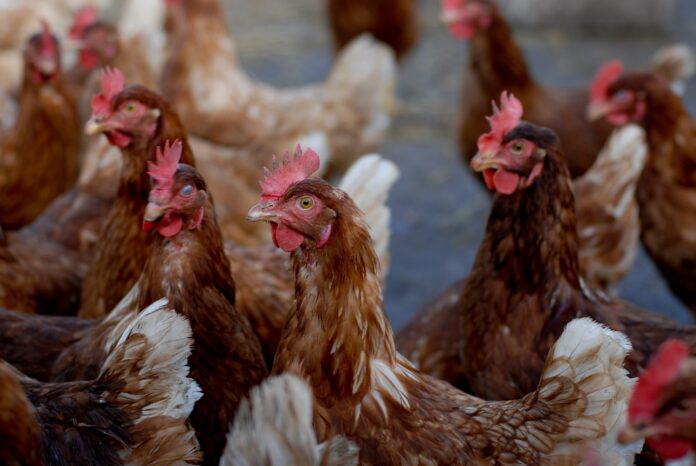Pennsylvania has its first case of bird flu in a domestic poultry flock. The U.S. Department of Agriculture confirmed on April 16 a case of Highly Pathogenic Avian Influenza in a commercial layer chicken flock in Lancaster County, Pennsylvania.
The positive samples were taken from a flock in East Donegal Township, Lancaster County, and tested at the Pennsylvania Veterinary Laboratory, the Pennsylvania Department of Agriculture said, in a statement. The finding was confirmed by the National Veterinary Services Laboratory in Ames, Iowa.
The department has quarantined the farm and all commercial poultry facilities within a 6-mile radius of the infected flock. Birds from the infected flock will be culled.
Prior to this, Pennsylvania had not had a confirmed case of HPAI in a commercial or backyard poultry flock since an outbreak in 1983-84. Infected birds have been found in flocks in 27 states from this current outbreak and millions of birds have been culled.
The news comes hot on the heels of the Pennsylvania Department of Agriculture’s announcement that it was temporarily banning the exhibition of poultry and eggs at county and local fairs in Pennsylvania. The ban begins April 16 and will last 60 days or until the department rescinds the order.
The temporary ban prohibits the presence and display of poultry and poultry products, including eggs, feathers and other parts and items made of these parts. The ban applies to the 108 county and local fairs that receive state funding under the Pennsylvania Agricultural Fair Act.
HPAI was detected in a wild bald eagle in Chester County and four ducks in Venango County, in late March.
Safeguards
Avian influenza viruses are naturally occurring and ever-present in wild birds that often do not appear sick and spread the virus in their droppings and wherever they land. Highly Pathogenic Avian Influenza is highly contagious and often fatal to domestic birds, including chickens, ducks, geese, turkeys, guinea fowl, quail, pheasants, emus and ostriches.
To protect domestic poultry, anyone visiting a farm should be aware that their vehicles and shoes may carry the virus from other places they have walked. Clean them thoroughly and stay away from poultry barns unless you have to be there.
If you have backyard chickens – pets or birds raised for show – keep them indoors and protect them from contamination by wild birds or their droppings.
If you have domestic birds, report sick domestic birds or unusual deaths in your flock 24 hours a day, 7 days a week to the PA Dept. of Agriculture at 717-772-2852 or email RA-ahds@pa.gov.










